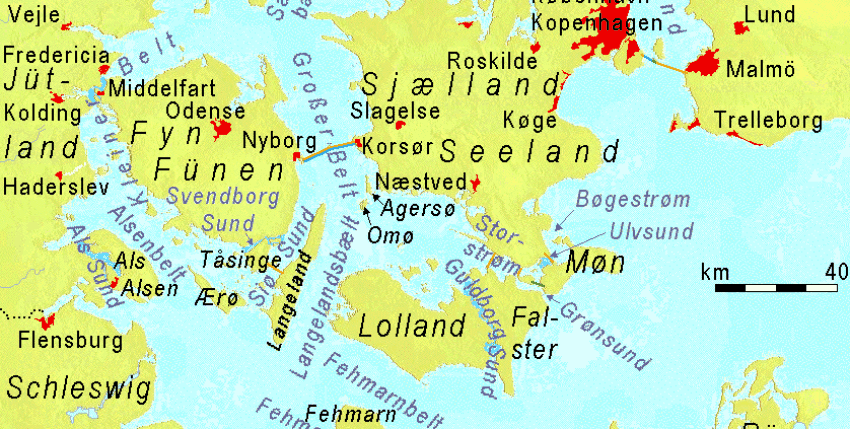Denmark is possibly to control ships in the Baltic Sea in order to monitor the sanctioned Russian oil exports.
As part of the oil price cap for Russian crude oil introduced by the EU, the G7 countries and Australia, the dominant Western insurers are not allowed to insure Russian oil cargoes with a price above 60 dollars per barrel. Russian exporters circumvent the price cap by resorting to non-Western insurers. Around 60 per cent of Russian oil is shipped by sea from Ust-Luga near the Estonian border and from Primorsk near St. Petersburg.
Belte and Sund
The route through the Baltic Sea also runs through Storebælt (Great Belt). Although the busy waterway is considered an international shipping route, this strait between the islands of Funen and Zealand lies within the 12-mile zone and Denmark therefore exercises administrative control. Every year, tens of thousands of ships pass through the Great Belt, which is up to 60 metres deep, 20 to 30 kilometres wide and 70 kilometres long in a narrower sense - with the Langelandsbelt around 100 kilometres. The risks to shipping posed by sharp turns, shoals, ship encounters and often poor visibility have been known since the beginning of seafaring, which is why Denmark also offers pilotage services.
"Shadow Fleet"
In view of the high average age of the ships purchased (over 15 years old), poor or inadequate maintenance and often a lack of classification (ship MOT), adequate insurance against the risk of an oil spill with serious environmental consequences must usually have been taken out. The key to success is therefore the enforcement of insurance regulations, according to an EU official, and this is currently very patchy. The EU proposal would utilise Denmark's power to inspect tankers with no or "questionable" insurance in its own waters.
EU plan
Should these inspections take place, ships without adequate insurance could be detained or refused passage.
However, the new EU sanctions package currently contains no provisions on Danish inspections, nor would Russian tankers be targeted by the authority.
It is hard to imagine what the consequences of an accident or the break-up of a "soul seller" in the Baltic Sea would be. All countries bordering the Baltic Sea would be directly affected by such an environmental disaster - including Russia, as Storebælt would then have to be closed to all shipping.
Source: The Maritime Executive
Further information in our article: Dangers of a "shadow fleet" from 11.07.2023







